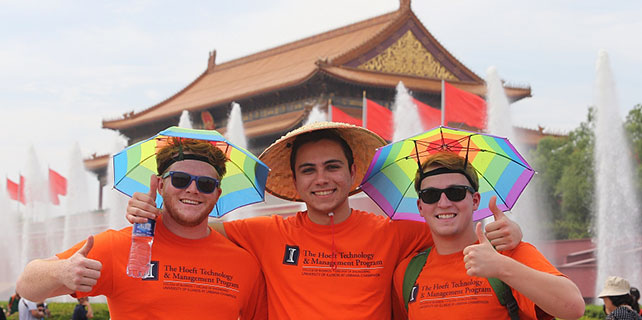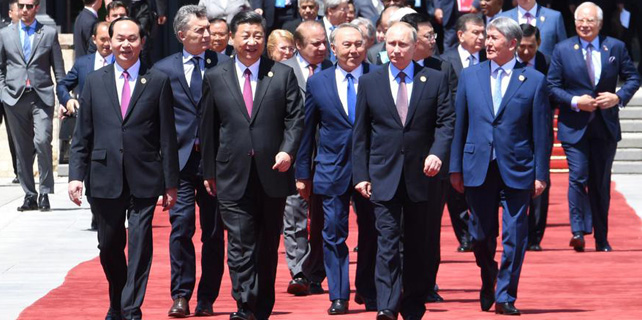China Medical City builds on AstraZenica success with new UK incubator
China Medical City is aiming to build on its success with drug giant AstraZeneca by opening an office in London on Wednesday.
The Taizhou-based life science incubator hosts laboratories, infrastructure, and a dedicated team to aid companies on seeking regulatory approval for their products in China.
Its London venture will initially provide more limited services to the pharmaceutical and medical industry.
Huang Bin, vice-president of AstraZeneca China, which built a $230 million factory inside the Medical City, said the company was attracted by CMC's partnership with China's drug regulating agencies, which helped the company's drugs get approved in China.
To attract more British companies such as AstraZeneca, CMC launched its UK incubator in London. It is CMC's third overseas incubator, after openings in the US and Germany earlier this year.
But unlike its 30 square kilometers Taizhou laboratory-dominated facility, CMC's central London incubator is just a regular office for meetings between Chinese and British life science companies, regulators and investors.
"The UK has unparalleled cutting edge life science technology, highly complementary to China's commercialization and production strength and massive domestic market," said Luke Zhou, director of CMC-UK Incubator.
Built in 2010, CMC hosts around 700 pharmaceutical and life science companies, such as AstraZeneca, Japan's Takeda and Germany's Boehringer-Ingelheim.
Zhou said CMC's key attraction to UK life science companies is its existing collaboration with Chinese regulators, including the Ministry of Health, the China Food and Drug Administration and the State Administration of Traditional Chinese Medicine.
CMC-UK Incubator's establishment comes at a time of strong UK China life science collaboration.
Last December 11 China-UK healthcare deals with a total value exceeding 250 million pounds ($323 million; 300 million euros) were signed in Shanghai during British Secretary of State for Health Jeremy Hunt's visit. In February this year British Minister for Asia and the Pacific Alok Sharma led a delegation of UK healthcare companies to showcase technology across China.
Despite flourishing opportunities, CMC also faces strong competition from many of China's other science parks and incubators. Suzhou Industrial Park, for example, hosts Britain's renowned medical equipment maker Smith & Nephew and pharmaceutical company GlaxoSmithKline.
Perhaps what makes CMC more attractive is its "established ecosystem, including its collection of life science companies and talents", said Will Addison, founder of London-based Apta Biosciences.
"We want to first enter China by finding a good partner, and hopefully we can do it at CMC," said Addison, who just returned from a visit to CMC.
However, CMC's lack of a UK-based lab could restrict potential partnerships, said Peter Crane, development officer of the Oxford-based accelerator Innovation Forum.
"Some life science companies may wish to keep their core research and development team together, so CMC could improve their value proposition if they have a physical lab space in the UK where British companies can work with Chinese investors and partners who come to the UK," Crane said.








